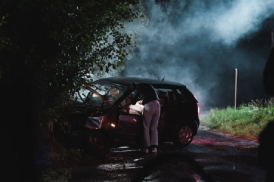There’s a possibility that your auto accident claims will be rejected by the insurance company, even if you seek legal help after a Las Vegas crash. Dealing with denied auto insurance claims is frustrating and disheartening. This is especially true if you rely on insurance coverage to help you sort out the pressing financial needs that follow the accident.
However, denying auto insurance claims doesn’t mean you should sit back and accept the decision. Auto accident victims have the right to dispute the insurance company’s decision. Below are a few things to know about disputing denied car insurance claims.
1. Understand the reasons for the denial
It is normal to feel confused and frustrated after your car accident claim is rejected. However, as you work around the initial confusion, you should find out why the insurance company dismissed your claims. Insurance companies often issue written explanations in a denial letter, highlighting the reasons behind claim rejection. Your claims might be rejected because of the following:
- The vehicle wasn’t listed on the insurance policy
- Claims exceed coverage limits
- The car’s insurance policy doesn’t cover the individual bearing the first-party claim
- The insurance policy wasn’t effective at the time of the accident
- The claimant was intoxicated or driving with an expired license
Regardless of the reasons provided, review and dissect the rationale. Some claims might be rejected due to information mismatches, inadequate documentation, or administrative errors.
2. Review your insurance policy
Having analyzed the reasons for rejection, you should review your insurance policy. Pay close attention to policy limitations or terms and conditions of the coverage. You should understand specific sections, such as coverage limits, exclusions, deductibles, and endorsements.
Compare the reasons given by the insurer with your policy. Your car accident lawyer can help you identify discrepancies or clauses that need better interpretation. If the reasons don’t align with the policy limitations, you have a solid basis for filing an appeal.
3. Gather additional evidence
You should file an appeal letter challenging the insurance company’s decision. Your appeal letter should outline how the evidence in your possession contradicts their decision. You should gather all available evidence to support your claims. Important evidence to include in your appeal letter include:
- Documentation related to the car crash: This includes photographs of the scene, evidence of vehicle damage, and injuries sustained. An official police report is also crucial.
- Medical records: Support your claims of receiving medical treatment and related costs.
- Witness statements – eyewitnesses provide independent accounts that can substantiate your claims.
4. Launch the appeal
With everything in place, you should then formally file the appeal. You should follow the due process for filing the appeal. Note that you should appeal the case within the time limits set by individual states. Submit your appeal through the designated channels, keep your copies, and wait for a response from the insurance company.
Endnote
Disputing a denied car crash claim is certainly challenging. You should seek legal help. Professional car accident lawyers are experienced in dealing with insurance claims. They will evaluate your case and provide valuable insights on how you can win the appeal. The lawyer can help you file a lawsuit if the insurance company remains unyielding.




